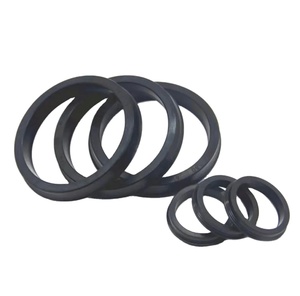Introduction to EPDM Compression Seal
The EPDM compression seal is a pivotal component used in various industries to attain optimal sealing solutions. EPDM, or Ethylene Propylene Diene Monomer, is a synthetic rubber notable for its impressive resistance to heat, ozone, and aging. This makes it an exceptional choice for sealing applications, particularly in environments subjected to harsh weather or chemical exposure. The primary purpose of these seals is to prevent the ingress of water, dirt, and other contaminants, thereby ensuring the longevity and reliability of mechanical systems.
Types of EPDM Compression Seal
EPDM compression seals come in several forms, each designed to cater to specific applications:
- Flat Seals: Ideal for flat surfaces, providing a robust barrier against water and air intrusion.
- Extruded Seals: Customizable to various profiles, offering flexibility for unique sealing requirements.
- Pre-formed Seals: Pre-cut seals designed for quick installation, suitable for immediate applications.
- Injection Molded Seals: Produced through advanced manufacturing techniques, these provide precision fitting for high-stress applications.
Applications of EPDM Compression Seal
The versatility of EPDM compression seals allows them to be used across numerous sectors, including:
- Automotive Industry: Used in doors, windows, and trunks to provide sound insulation and weatherproofing.
- Construction: Essential for waterproofing and air sealing in building envelopes and roofing systems.
- HVAC Systems: Employed in ductwork to prevent air leaks and maintain energy efficiency.
- Aerospace: Utilized in sealing components that operate in extreme weather and temperature conditions.
Features and Advantages of EPDM Compression Seal
The EPDM compression seal boasts a range of standout features and advantages, making it a preferred choice for many applications:
- Weather Resistance: Excellent performance in extreme temperatures, ensuring durability in both hot and cold climates.
- Chemical Inertness: Resistant to a wide variety of chemicals, making it suitable for industrial applications.
- Compression Set Resistance: Maintains its shape over time, which helps prevent leakage as the seal ages.
- Easy Installation: Typically lightweight and flexible, allowing for simple integration into existing systems.
- Cost-Effective: Provides long-term savings through reduced maintenance and replacement costs.





















































